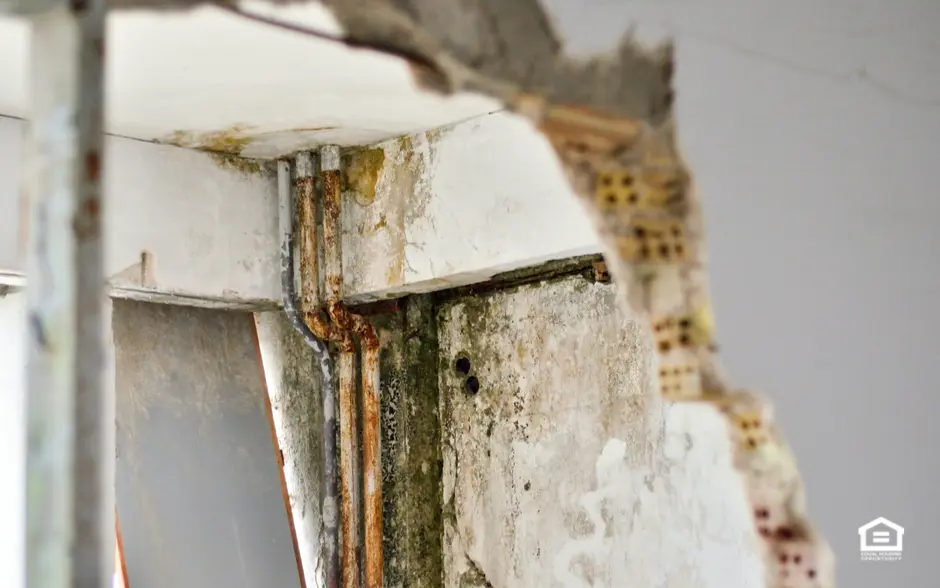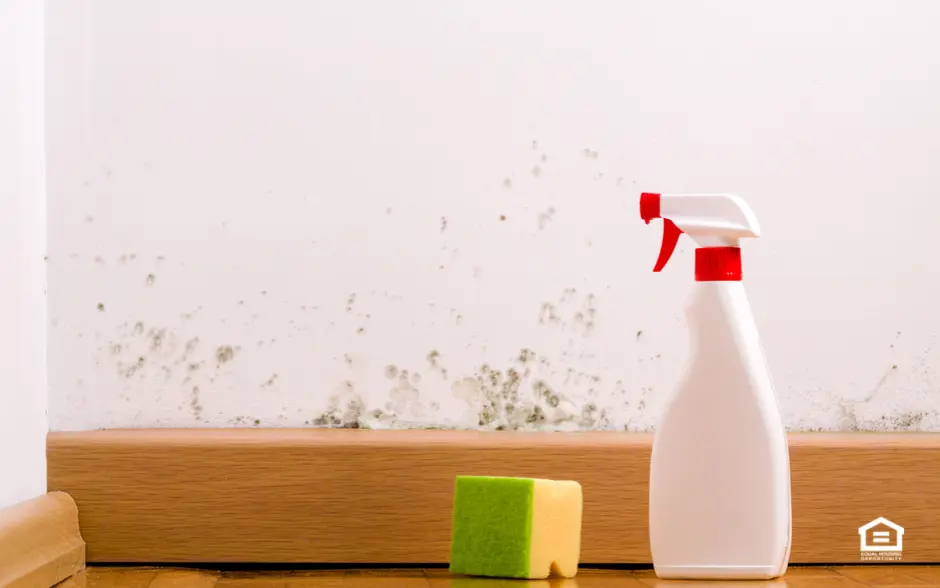When Should You Be Concerned About Mold in Your Rental Property?
If your tenant discovers mold growing in your single-family rental home, at first it can be hard to know how concerned you should be. There are many different kinds of household mold, most of which are not considered toxic or harmful to your tenant’s health. However, toxic mold does exist, and can cause physical symptoms for those who are sensitive to it. Knowing when you should be concerned about mold in your rental property can help you to take appropriate steps to protect your tenant, your property, and yourself from unwanted legal trouble.

What is Mold?
Mold is an invasive fungus that likes to hide in walls and ceilings, especially in homes with high humidity levels or water damage. Because it often grows inside walls or in other hidden spots, it can make mold hard to see at first. Usually, the first clue that there is a mold problem is the smell. Mold smells musty, a foul odor that doesn’t go away even if the home’s interior is clean. If you notice this kind of smell, the next thing to do is to find the mold and check the color and appearance. Molds can grow in a range of colors, including blacks, greens, and even reds. Many kinds of mold look fuzzy, while others can appear slimy. While you might be startled to see black blotches of mold growing in a wall or ceiling, it may not be the toxic variety. Toxic mold, or Stachybotrys chartarum (also called Stachybotrys atra) is a greenish-black mold that requires constant moisture to grow. This type of mold usually occurs after excessive humidity or condensation, water leaks, significant water damage, or flooding. This can be your first hint at whether or not the mold in your rental property is toxic mold or not. If your property has not recently sustained serious water damage, and you are reasonably sure that you don’t have a humidity or condensation problem, it is probably not toxic mold. On the other hand, the presence of toxic mold could be your first clue that your rental home has these kinds of problems. A hidden water leak or humidity problem may, in fact, be occurring in your rental property without your knowledge. If that is the case, it is important to take immediate action to correct the leak or moisture issue and then to remove the mold. You can get a simple do-it-yourself mold test kit at most hardware stores, which can help you determine what kind of mold you are dealing with. Once you have that information, you can take action to clean up the property.

Mold Removal
Most household molds can be safely removed with a bleach solution and a scrub brush. If the mold is not too advanced, one application of the bleach mixture might be enough to stop it in its tracks. If the mold growth is extensive or you discover that your property has toxic mold, on the other hand, you’ll likely need to take much more drastic action. Once mold has spread to carpets, wallboard, cabinets, and furniture, these items cannot be cleaned. They must be replaced. Your tenant may also need to relocate while the repairs are completed. While the Center for Disease Control (CDC) notes that not everyone will get sick from toxic mold, some people do experience physical symptoms including respiratory discomfort, headaches, dizziness, skin rashes, and so on. While removing mold can be done reliably safely, some property owners feel more comfortable hiring a professional company, such as Rainbow International, to come in and clean up the mold. This may even be necessary depending on the severity of your mold problem. No matter how you go about it, however, it is important to take immediate and appropriate action to prevent the mold from spreading. If you know about the mold and fail to address the problem, your tenants may be able to take legal action against you. The best way to deal with mold is to prevent it in the first place. Encouraging your tenant to report suspicious mold growths is an important first step in preventing toxic mold on your property, as is promptly repairing water leaks or condensation issues.
Of course, all of these aspects of property management take time, and as they say, time is money. That is why Real Property Management performs regular property evaluations on each rental property. We understand that prevention is far better – and less expensive – than any cure. When you hire Real Property Management, you know that you have hired a company that believes that catching any problems early on is the best way to protect your valuable rental home and your tenants, too. Would you like to learn more? Please contact your nearest Real Property Management office.
We are pledged to the letter and spirit of U.S. policy for the achievement of equal housing opportunity throughout the Nation. See Equal Housing Opportunity Statement for more information.
Get the Neighborly App
In addition to Real Property Management's expert skills in managing your rental property, you can utilize Neighborly's other brands to maintain and enhance your home. Use the Neighborly App to get connected to local home service professionals. Download and receive offers only available on the App.
Depending on current health and safety regulations in your area, some of the services mentioned in this post may not be available. Neighborly service providers will follow the latest health and safety guidelines provided by the local and state governments. Please check with your local Neighborly service provider for details at the time you need service(s).






